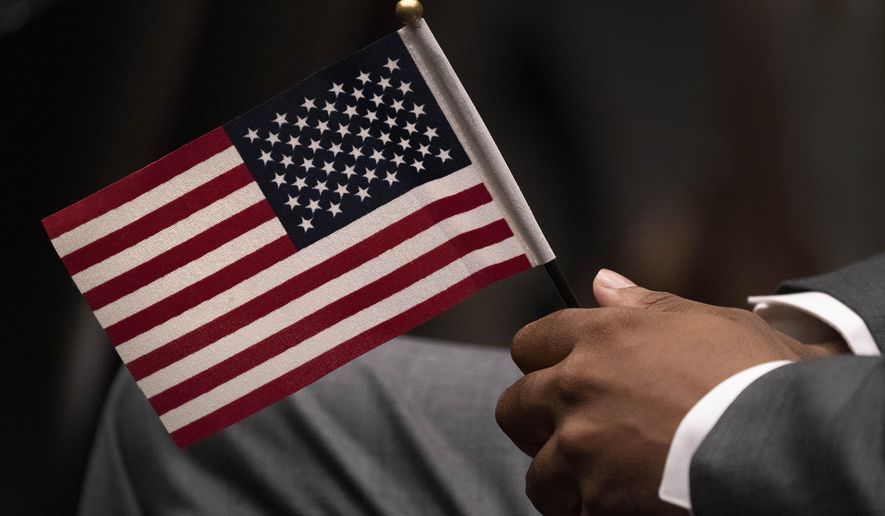 |
| AP Photo/Mark Lennihan, File |
Eliminating practice doesn't require constitutional amendment
In October, a girl named Echo was born in California. But neither this new American citizen’s parents mother nor father had ever set foot in the United States. Instead, the newborn was sent home with Auntie Wang, a Chinese nanny hired by an agency called Fat Daddy, to await the arrival of her parents from China.
Echo’s birth was the result of a booming commercial surrogacy industry in California. The state’s laws governing commercial surrogacy are some of the most permissive in the world, attracting wealthy Chinese families who will pay big money to have their children born in the United States — and receive the automatic U.S. citizenship that accompanies their birth. The growing competition between the U.S. and China has only made American citizenship more attractive to many Chinese families, who see it as a “win-win” for their children to have a nationality foothold in each of the two global powers.
For years, Chinese families would do this the old-fashioned way: Mothers would take up residency in the United States to give birth and recover before returning to China with their babies. But in vitro fertilization advances and surrogacy technologies, coupled with China’s strict travel restrictions since COVID-19, have led many families to instead ship their reproductive samples (sperm and egg) to California, where they are implanted into a willing surrogate.
Thus, every year hundreds of new American citizens like Echo come into the world, many without the slightest connection to this country.
Commercial surrogacy is an ethical abomination. The federal government should follow the lead of Louisiana, Michigan, Nebraska, and scores of foreign countries and ban the practice outright. But stories like Echo’s also serve to illustrate the absurdity of birthright citizenship given the geopolitical and technological realities of the 21st century.
The United States is one of the only developed countries in the world to offer birthright citizenship to all comers. It’s far past time to change that. --->READ MORE HERECountries that Recognize Citizenship by Birth:
Have you ever considered what it would be like to gain citizenship from a second country by birthright? While this might not be possible for everyone, for many people, it is.
For those born in one country but moved to another after birth or at a very young age, or have family members born in or were nationals of a different country, certain nations will grant citizenship by birth.
If you’re interested in obtaining citizenship in another country or are just curious about the criteria for obtaining second citizenship, read on to learn more about the countries that recognize citizenship at birth.
This article will look at the requirements to acquire a second passport through birthright citizenship, and the differences between citizenship by jus soli (right of soil) and citizenship by jus sanguinis (right of blood).
We’ll also discuss the benefits of dual citizenship and other ways to acquire a second citizenship.
What is citizenship by birth?
Citizenship by birth is the status of acquiring citizenship on a birth certificate from the moment of birth, or having the eligibility to obtain it. This can occur either by the person’s parents or descendants being citizens of the country [jus sanguinis] or by jus soli, a Latin phrase meaning “right of soil,” which is a rule proclaiming that the place of birth determines the citizenship of a child.
In most cases, citizenship at birth is acquired automatically, but some countries enforce specific requirements or conditions to be met. --->READ MORE HERE
If you like what you see, please "Like" and/or Follow us on FACEBOOK here, GETTR here, and TWITTER here.


No comments:
Post a Comment